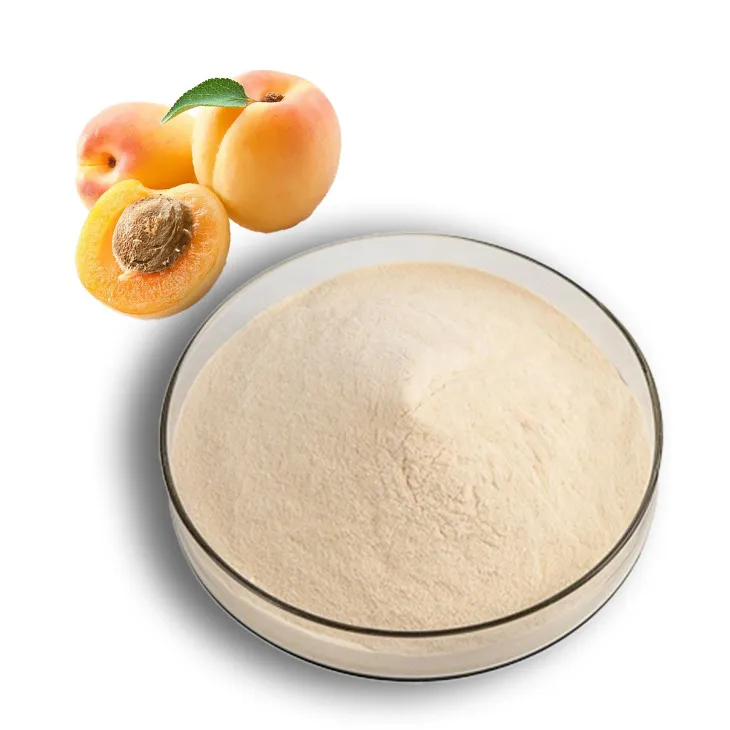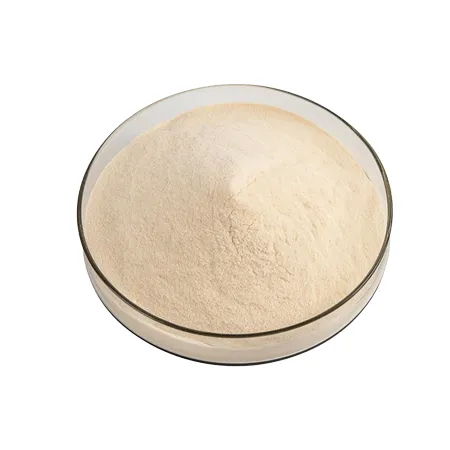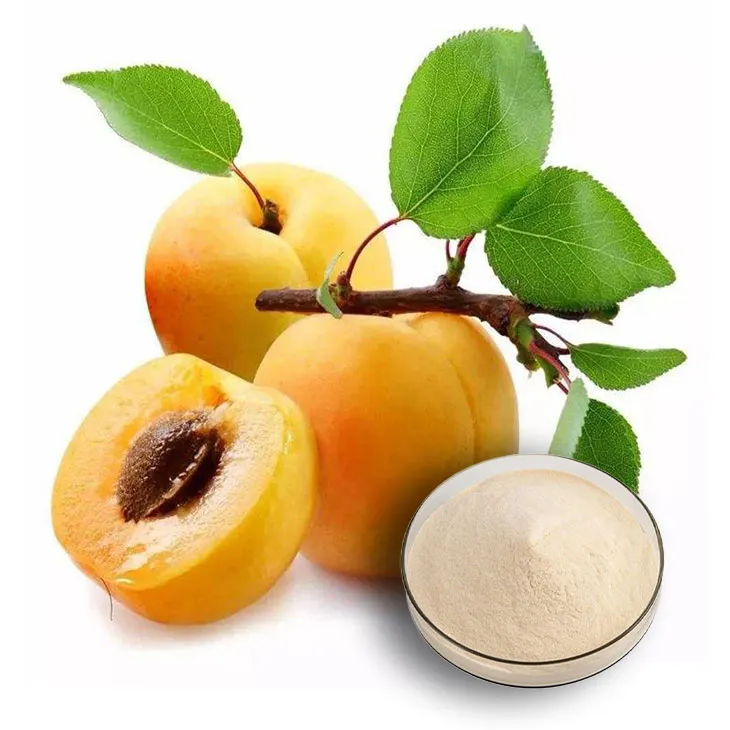- 0086-571-85302990
- sales@greenskybio.com
China Apricot Powder Factory.
2024-11-28

1. Introduction to China's Apricot Powder Factories
China's Apricot Powder factories play a significant role in the global food industry. These factories are dedicated to the production of high - quality Apricot Powder, which has become a popular ingredient in various food products and dietary supplements.
Apricot powder is rich in nutrients such as vitamins, minerals, and dietary fiber. It is also known for its unique flavor, which can add a pleasant taste to food and beverages. China, with its vast agricultural resources and advanced manufacturing capabilities, has the potential to be a major producer of apricot powder.

2. The Production Process
2.1 Raw Material Selection
The production of high - quality apricot powder starts with the careful selection of raw materials. Fresh and ripe apricots are preferred, as they contain the highest levels of nutrients and flavor compounds. Apricots are sourced from local orchards, where farmers follow strict agricultural practices to ensure the quality of the fruit.
Before being used in the production process, apricots are subject to strict inspection procedures. This includes checks for freshness, ripeness, and the absence of pests and diseases. Only apricots that meet these high - quality standards are selected for further processing.
2.2 Processing and Manufacturing
Once the apricots have been selected, they are washed thoroughly to remove any dirt or debris. Then, they are peeled and pitted to prepare them for the next step in the production process.
The apricot flesh is then dried using specialized drying equipment. This helps to preserve the nutrients and flavor of the apricots while reducing their moisture content. After drying, the apricots are ground into a fine powder using advanced grinding technology.
The grinding process is crucial in determining the quality of the apricot powder. Fine - textured apricot powder is more desirable as it is easier to mix with other ingredients and has a better mouthfeel. The grinding equipment used in China's apricot powder factories is state - of - the - art, ensuring a consistent and high - quality product.
2.3 Packaging and Storage
After the apricot powder has been produced, it is carefully packaged to protect it from moisture, air, and light. Packaging materials such as foil - lined bags or airtight containers are commonly used to ensure the long - term stability of the product.
The packaged apricot powder is then stored in a cool, dry place to maintain its freshness and quality. Proper storage conditions are essential to prevent the degradation of the powder and to ensure that it retains its nutritional value.

3. Quality Control and Assurance
Quality control is a top priority in China's apricot powder factories. These factories have implemented strict quality management systems to ensure that their products meet the highest standards.
3.1 In - process Quality Control
During the production process, quality control checks are carried out at every stage. This includes monitoring the quality of the raw materials, the processing parameters, and the final product. Any deviation from the established quality standards is immediately addressed to prevent the production of sub - standard products.
3.2 Laboratory Testing
Apricot powder samples are regularly sent to the laboratory for comprehensive testing. These tests include analysis of nutrient content, microbiological safety, and chemical composition. The results of these tests are used to verify the quality of the product and to make any necessary adjustments to the production process.
3.3 Certification and Compliance
China's apricot powder factories also strive to comply with international quality and safety standards. Many factories have obtained certifications such as ISO 9001 for quality management and HACCP for food safety management. These certifications not only demonstrate the factories' commitment to quality but also help them to access international markets.

4. Market Opportunities
The market for apricot powder is growing steadily, both domestically and internationally. There are several factors driving this growth, presenting significant opportunities for China's apricot powder factories.
4.1 Growing Health Consciousness
In recent years, there has been a significant increase in health consciousness among consumers. People are more aware of the importance of a healthy diet and are actively seeking out nutritious food products. Apricot powder, with its rich nutrient profile, is seen as a healthy addition to the diet. It can be used in smoothies, baking, and as a topping for cereals and yogurt, making it a versatile and appealing product for health - conscious consumers.
4.2 Expansion of the Food and Beverage Industry
The food and beverage industry is constantly evolving and expanding. There is a growing demand for innovative ingredients that can add unique flavors and nutritional value to products. Apricot powder fits this bill perfectly, as it can be used to develop new products such as apricot - flavored drinks, energy bars, and confectionery items. As the food and beverage industry continues to grow, so will the demand for apricot powder.
4.3 International Market Potential
China's apricot powder has the potential to gain a significant share of the international market. With its high - quality production and competitive pricing, Chinese apricot powder can be exported to countries around the world. The increasing globalization of the food trade and the growing interest in Asian - inspired food products provide an excellent opportunity for Chinese apricot powder factories to expand their overseas markets.
5. Challenges Faced by China's Apricot Powder Factories
Despite the numerous opportunities, China's apricot powder factories also face several challenges in the competitive market environment.
5.1 Competition from International Producers
The global apricot powder market is highly competitive, with producers from various countries vying for market share. Some international producers may have advantages in terms of brand recognition, marketing resources, and access to certain markets. Chinese apricot powder factories need to find ways to differentiate themselves from their international counterparts and build a strong brand identity in the global market.
5.2 Price Volatility of Raw Materials
The price of apricots, the main raw material for apricot powder, can be subject to significant volatility. Factors such as weather conditions, crop yields, and market demand can all affect the price of apricots. This price volatility can pose challenges for apricot powder factories, as it can impact their production costs and profit margins. Factories need to develop strategies to manage raw material price risks, such as through long - term supply contracts or diversification of raw material sources.
5.3 Stringent Regulatory Requirements
Both domestic and international markets have strict regulatory requirements for food products. Apricot powder factories need to comply with these regulations, which cover aspects such as food safety, labeling, and packaging. Meeting these requirements can be time - consuming and costly, especially for small and medium - sized factories. However, non - compliance can result in serious consequences, including product recalls and damage to the factory's reputation.
6. Strategies for Success
To overcome the challenges and capitalize on the opportunities, China's apricot powder factories can adopt several strategies.
6.1 Product Innovation
Continuous product innovation is key to staying competitive in the market. Factories can invest in research and development to create new and unique apricot powder products. This could include developing apricot powder with added functional ingredients, such as probiotics or antioxidants, or creating new product forms such as instant apricot powder or apricot powder capsules.
6.2 Brand Building
Building a strong brand is essential for establishing a presence in the global market. Apricot powder factories can focus on brand promotion through various channels, such as social media, trade shows, and product endorsements. A strong brand can help to increase brand awareness, build customer loyalty, and differentiate the factory's products from competitors.
6.3 Cost Management
Effective cost management is crucial for maintaining profitability. Factories can look for ways to optimize their production processes, reduce waste, and negotiate better prices for raw materials. By keeping production costs under control, factories can offer competitive prices while still maintaining high - quality standards.
6.4 Strategic Partnerships
Forming strategic partnerships can provide numerous benefits for apricot powder factories. This could include partnerships with suppliers to ensure a stable raw material supply, or partnerships with food and beverage companies to develop co - branded products. Strategic partnerships can also help factories to access new markets, share resources, and gain a competitive edge in the market.
7. Conclusion
China's apricot powder factories have the potential to be major players in the global food industry. With their high - quality production, strict quality control, and access to a large domestic market, these factories are well - positioned to take advantage of the growing market opportunities for apricot powder.
However, they also face significant challenges in the form of competition, raw material price volatility, and regulatory requirements. By implementing strategies such as product innovation, brand building, cost management, and strategic partnerships, these factories can overcome these challenges and strengthen their competitiveness in the global market.
As the demand for healthy and nutritious food products continues to grow, the future looks bright for China's apricot powder factories. With continued investment in technology and innovation, these factories can look forward to a prosperous future in the global apricot powder market.
FAQ:
What are the key factors for the high - quality production in China's almond powder factories?
The key factors include starting with carefully selected almonds that go through strict inspection procedures to ensure freshness and purity. Also, the state - of - the - art production facilities with advanced grinding and packaging technologies play a crucial role in producing almond powder with a fine texture and long shelf - life.
How does the growing trend of healthy eating affect Chinese almond powder factories?
The growing trend of healthy eating has increased the demand for almond powder. This provides an opportunity for Chinese almond powder factories as more consumers are interested in their products, which can lead to increased sales and market expansion.
What challenges do Chinese almond powder factories face in the global market?
Chinese almond powder factories need to compete with international counterparts in terms of price and quality. They have to strive to offer competitive prices while maintaining high - quality products to gain a larger share in the global market.
How are Chinese almond powder factories strengthening their competitiveness?
Through continuous improvement in technology and product innovation, Chinese almond powder factories are steadily strengthening their competitiveness in the global market. For example, they may develop new flavors or formulations of almond powder to attract more consumers.
What role does the inspection of almonds play in the production process?
The inspection of almonds is crucial as it ensures the freshness and purity of the raw material. This helps in producing high - quality almond powder. If the almonds are not fresh or pure, it can affect the taste, texture, and overall quality of the final product.
Related literature
- Title: Advances in Almond Processing Technologies in China"
- Title: "The Global Almond Powder Market: Trends and Chinese Producers"
- Title: "Quality Control in Almond Powder Production in China"
- ▶ Hesperidin
- ▶ Citrus Bioflavonoids
- ▶ Plant Extract
- ▶ lycopene
- ▶ Diosmin
- ▶ Grape seed extract
- ▶ Sea buckthorn Juice Powder
- ▶ Fruit Juice Powder
- ▶ Hops Extract
- ▶ Artichoke Extract
- ▶ Mushroom extract
- ▶ Astaxanthin
- ▶ Green Tea Extract
- ▶ Curcumin
- ▶ Horse Chestnut Extract
- ▶ Other Product
- ▶ Boswellia Serrata Extract
- ▶ Resveratrol
- ▶ Marigold Extract
- ▶ Grape Leaf Extract
- ▶ New Product
- ▶ Aminolevulinic acid
- ▶ Cranberry Extract
- ▶ Red Yeast Rice
- ▶ Red Wine Extract
-
Motherwort Extract
2024-11-28
-
Berberis aristata Extract
2024-11-28
-
Bayberry Extract
2024-11-28
-
Moringa powder
2024-11-28
-
Yellow Pine Extract
2024-11-28
-
Cranberry Extract
2024-11-28
-
Sugarcane Extract
2024-11-28
-
Chia Seed Powder
2024-11-28
-
American Ginseng Root Extract
2024-11-28
-
Konjac Powder
2024-11-28





















